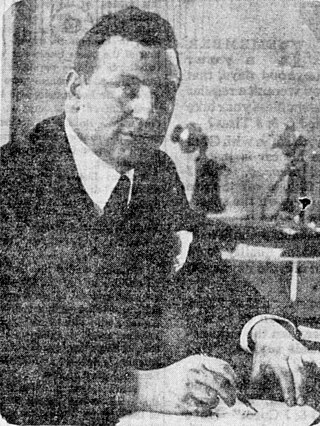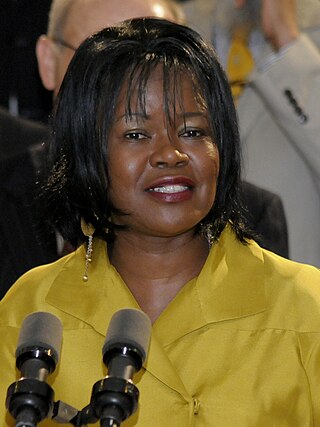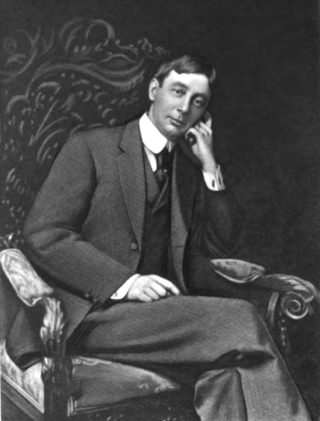
Dino Rađa is a Croatian former professional basketball player. He was a member of the Jugoplastika team of the late 1980s and early 1990s,which he helped to win two FIBA European Champions Cup championships. He spent three and a half seasons with the Boston Celtics,being one of the European pioneers in the NBA. Rađa was named one of FIBA's 50 Greatest Players in 1991,and one of the 50 Greatest EuroLeague Contributors in 2008. He was inducted into the Basketball Hall of Fame,as a member of the 2018 class. He was inducted into the Greek Basket League Hall of Fame,in 2022.
The U.S. Probation and Pretrial Services System,also called the Office of Probation and Pretrial Services,part of the Administrative Office of the United States Courts,is the probation office of the federal judiciary of the United States. It serves the United States district courts in all 94 federal judicial districts nationwide and constitutes the community corrections arm of the Federal Judiciary. It administers probation and supervised release under United States federal law enforced by probation officers.

Denny Chin is a senior United States circuit judge of the United States Court of Appeals for the Second Circuit,based in New York City. He was a United States District Judge of the United States District Court for the Southern District of New York before joining the federal appeals bench. President Bill Clinton nominated Chin to the district court on March 24,1994,and Chin was confirmed August 9 of that same year. On October 6,2009,President Barack Obama nominated Chin to the Second Circuit. He was confirmed on April 22,2010,by the United States Senate,filling the vacancy created by Judge Robert D. Sack who assumed senior status. Chin was the first Asian American appointed as a United States District Judge outside of the Ninth Circuit.
Gary Lee Sampson was an American bank robber and later spree killer who killed three people and was sentenced to death by a federal jury in Massachusetts.

Salvatore Francis "Sal" DiMasi is a former Democratic state representative in Massachusetts. The former Speaker of the Massachusetts House of Representatives originally joined the state legislature in 1979,as a member of the Democratic Party. He eventually resigned from this post in January 2009,just six months prior to being indicted on several Federal charges,including conspiracy to defraud the federal government,extortion,mail fraud and wire fraud. DiMasi was found guilty on 7 of 9 federal corruption charges on June 15,2011. DiMasi is the third consecutive Massachusetts house speaker to later become a convicted felon due to crimes committed in office.

Francis Joseph William Ford was a United States district judge of the United States District Court for the District of Massachusetts.

Luigi Giovanni "Baby Shacks" Manocchio was an American mobster from Providence,Rhode Island. He was the boss of the New England-based Patriarca crime family,which is part of the American Mafia.

Dianne Wilkerson is a convicted felon and former Democratic member of the Massachusetts Senate,representing the 2nd Suffolk District from 1993 to 2008 as the first African American female to serve in the chamber.

John Daniel Breen is a senior United States district judge of the United States District Court for the Western District of Tennessee.

Robert Randall "Randy" Crane is the chief United States district judge of the United States District Court for the Southern District of Texas.

Mark Lawrence Wolf is a Senior Judge for the United States District Court for the District of Massachusetts and founder and chair of Integrity Initiatives International.

The kids for cash scandal centered on judicial kickbacks to two judges at the Luzerne County Court of Common Pleas in Wilkes-Barre,Pennsylvania,US. In 2008,judges Michael Conahan and Mark Ciavarella were convicted of accepting money in return for imposing harsh adjudications on juveniles to increase occupancy at a private prison operated by PA Child Care.
George Koskotas is a former banker and publisher who spearheaded a financial scandal that brought down the PASOK government in 1989.

The Boston Municipal Court (BMC),officially the Boston Municipal Court Department of the Trial Court,is a department of the Trial Court of the Commonwealth of Massachusetts,United States. The court hears criminal,civil,mental health,restraining orders,and other types of cases. The court also has an appellate division which reviews questions of law that arise from civil matters filed in the eight divisions of the department.

Asa Palmer French was an American attorney who served as the United States Attorney for the District of Massachusetts from 1906 to 1914.

Carmen Milagros Ortiz is an attorney,college instructor,and former United States Attorney for the District of Massachusetts.

Indira Talwani is a United States district judge of the United States District Court for the District of Massachusetts.

James A. Kelly Jr. was an American politician who served as a Democrat in the Massachusetts House of Representatives from 1959 to 1965 and the Massachusetts Senate from 1965 to 1979. In 1983,he was convicted of extortion.
Jasiel F. Correia II is an American politician who served as mayor of Fall River,Massachusetts from 2016 to 2020. He was arrested twice on charges related to fraud and extortion while in office. Defeated in the November 2019 mayoral election,his term expired on January 6,2020.
















